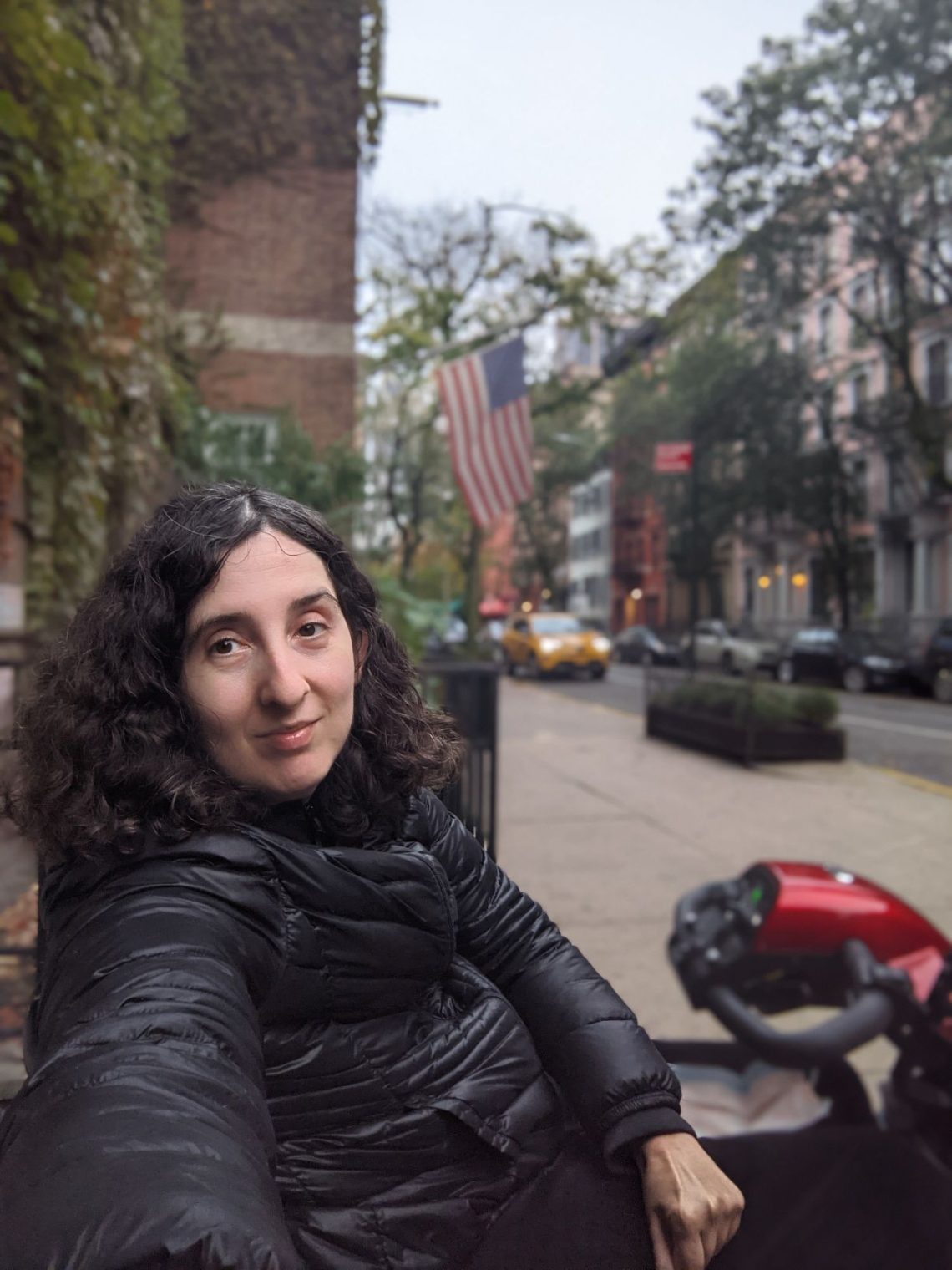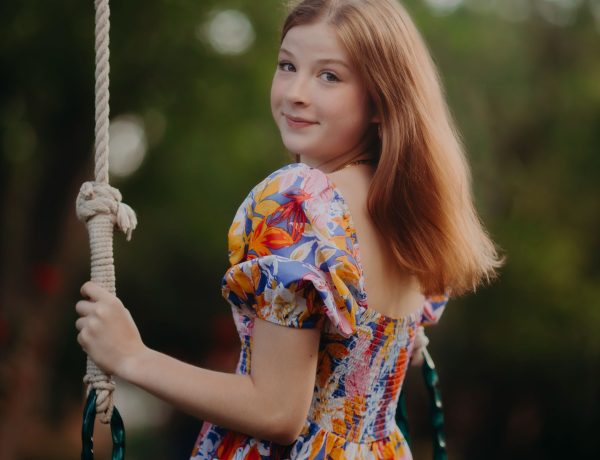The celebrated Easterseals Disability Film Challenge provides disabled filmmakers like Anna Pakman a platform to showcase their stories. “They’re actually having their 10th anniversary,” she explains. “It’s an amazing program that was created by Nic Novicki, who is a comedian and an actor, for us to create our own content because Hollywood wasn’t doing it for us. Every year, teams from around the world compete. You have five days to create a five minute short film. They give you the genre, theme, props you have to use, and locations you have to film in. That way, everyone knows that everyone did it within those five days.” This year’s motif was right up Anna’s alley. “The genre of the challenge was romance. I come from a comedy background, as do several members of my team. We decided to go in the direction of romantic comedy to really be able to play to our comedic strengths. We came up with this concept of Cripfished, which references both being catfished, where people on online apps pretend to be someone they’re not, and the entertainment industry practice of casting a famous actor who doesn’t have a disability to play a character that is supposed to be disabled. Inadvertently, even the best actors, without having that lived experience of having a disability, get a lot of stuff wrong.”
Combining these elements with general first date awkwardness, shenanigans were bound to ensue. “Cripfished is about Logan (Melissa Jennifer Gonzalez) who meets Amy (Bree Klauser), a woman who’s visually impaired, in the process of online dating and decides to pretend to be blind because they think that’s what this woman wants from a partner. In the movie, you see Logan pretend to be blind in a really exaggerated, offensive, ridiculous way. That caricature is informed by the biases Logan has developed from what they have seen in the media.” Anna was inspired by her own romantic mishaps, often stemming from ableism and ignorance, which Amy is determined to avoid. “As someone with a disability who has braved the dating apps, I think you find a spectrum of people and there’s just a lot of bullshit that you have to put up with, to be honest,” Anna admits. “Amy is fed up with that. She finds that she’s meeting all of these non-disabled people who don’t really understand her or behave in ways that are inappropriate. As she tells Logan, she’s had some bad experiences, so in her mind, she’s not going to have that bad experience again if she sticks to people who have disabilities.” While marginalized people are absolutely justified in seeking folks with shared lived experience, Amy finds that she can potentially miss out on something fantastic. “Logan challenges that part of Amy. We see that in the film when they ask her, ‘Would you not have fallen in love? Would you not want to date me if you knew upfront that I wasn’t disabled? Even though we’ve had this connection and this experience?’ I think at the end of the day, people are people.” Shared background doesn’t always mean compatibility. “It’s those things that you have in common. The small things. It’s your life goals. That’s what really is a recipe for whether this is going to be a successful relationship or not. Do you click, do you have chemistry?”
Cripfished underscores the honesty and safety that we all desire within relationships. “It’s about this concept of trust. Amy is perhaps angrier with Logan for lying than faking being blind. I think that speaks to the universality of experiences where people with disabilities can watch this film and get a lot out of it, but equally, people who don’t have disabilities can relate to it. That’s what’s so important to me in making these films for the Easterseals Challenge, is creating content that everyone can watch and find something to relate to.” Anna wants viewers to recognize that they have way more in common with people with disabilities than they may have originally thought. “I think particularly with the non-disabled audience, it’s important for them at the end of five minutes to realize, ‘This is similar to my experiences. These people have disabilities and they’re no different than I am, than my friends are, than my family is. That kind of understanding is a really important bridge to achieve, to really get people to think differently about people with disabilities as potential partners.” Despite the messages that the media sends, those with disabilities deserve to be perceived as the desirable romantic partners that they are! “One thing that I feel you don’t see enough in the media is romance and disability. I was so excited that the Easterseals team and Nic decided to make the genre romance this year, because people generally don’t see people with disabilities as romantic leads. And when people don’t see people with disabilities in that capacity on TV or in the movies, they carry that bias with them in real life. So when they go on dating apps or when they meet people, they don’t see the person with a disability as a potential partner. I think if we had more disability representation, particularly as romantic leads, then we would have a generation where it would be considered perfectly normal to have a partner who has a disability of one form or another. Because what people think is normal is often influenced by the media. That’s why, for me, my particular brand of disability advocacy has largely circled around, how do we get more representation in the media? How do we get more of our stories out into mainstream society?” Answers may vary, but we do know this: the silver screen needs more richly nuanced disability narratives like Anna’s.
Read more Celebrity Interviews on ClicheMag.com
Filmmaker Anna Pakman Brings the Laughs in Disability-Focused Rom Com Short, “Cripfished.” Photo Credit: Courtesy of Anna Pakman.





